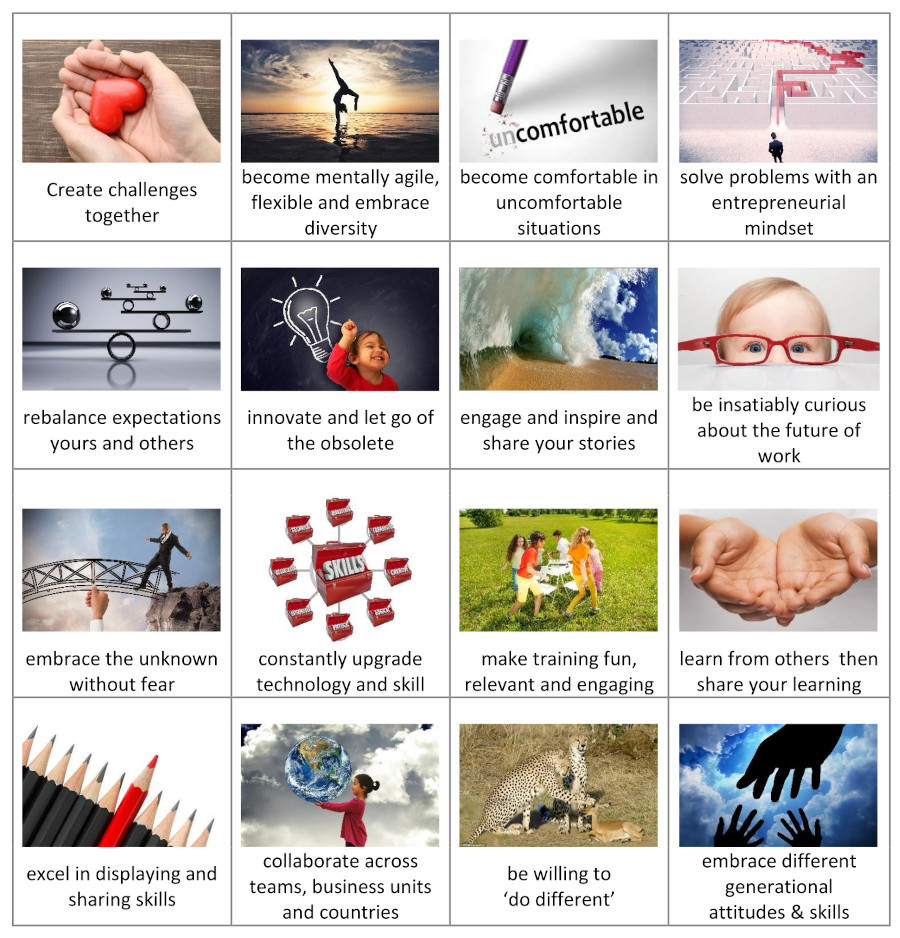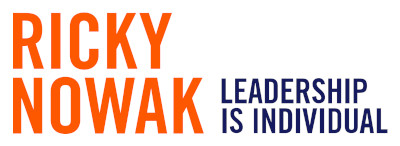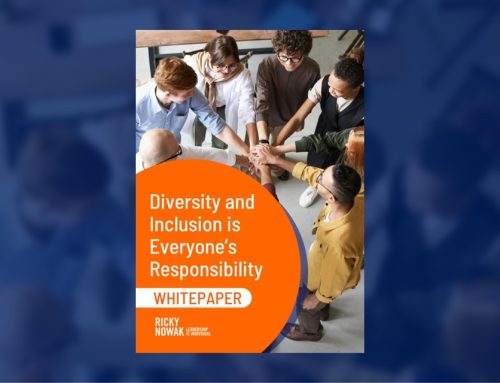
We know that the quality of leadership along with the decisions made, can determine the success of a person, team or organisation for better or for worse. And while some experienced leaders are able to make high quality decisions based on intuition and data, all leaders now must seek consensus and collaboration from their people so they can collectively make the best decisions for unchartered times.
While Covid-19 has presented mankind with unparalleled challenges it has also presented us with a perfect time to resent how we work, what we work on and how we behave. Melissa Swift Global Leader for Digital Solutions, Korn Ferry cites- “Fit-for-purpose is no longer good enough. Organisations and leaders need to become fit-for-future.”
How true this is and the Five Disciplines of a Leader’s Mindset© will help leaders become future ready and future prepared for what’s ahead. Here’s how!
Discipline # 1 Trust
Think of building Trust like building a trust account in a financial sense. It can take a long time to accrue wealth and everyone looks forward to receiving regular interest or dividends along the way. Yet one withdrawal that is not well thought through can cost us the lot. When it comes to working with people trust works the same way. Every deposit we make as we build our relationships must demonstrate we are building a strong foundation that will keep us safe and secure. Yet if we fail to deliver on our promises, don’t stay true to what and who matters, breach confidentiality or ethics or offend in even some small it can mean starting all over again or in some cases, never being able to build the trust again.
People’s behaviour is goal directed and in working towards that goal they need to feel secure in trusting the process, procedure and people who help them solve their pain, challenge, opportunity or concern. Trust brings us closer to achieving our goals.
Discipline #2 – Clarity
The hardest thing about clarity is that very few things in life and business are clear and easy to understand – from words to behaviours and emotions. We seem to be experts at complicating what we say rather than what we mean and while unintentional end up confusing others and getting frustrated or disappointed.
I call this Simplex-ity. It is what happens when we take simple messages and deliberately complicate language in order to appear more ‘intelligent’ or ‘worthy of being listened to’. Sadly many professionals feel they have to embellish their language thinking it will impress others rather than trying to be clear, simple and concise. The premise being the more sophisticated our language is the smarter we are. In truth it works out that this the very thing that diminishes our ability to relate to others and build trust and relationships.
Leaders who make it easy for the others to understand their presentations leave no room for misinterpretation and make people feel more connected, valued and engaged. It takes discipline to be concise and not convoluted!
Discipline # 3 – Compassion
If there is to be an upside to the pandemic of 2020, it would be in the area of human compassion. People globally are showing more compassion to each other now than the world has ever seen before. This synchronous experience is something everyone will relate to in some way as there are no bystanders in this extraordinary time.
2020 has humanised the world enabling people to take off their metaphorical mask of strength and put on the same cloth one as everyone else. People have become more emotionally intelligent, more empathic and certainly more aware of how they operate under stress, fatigue or pressure and try harder to make sense of how they will go forward individually and collectively. For now anyway people are more patient, more tolerant and less judgemental than they have been in the past, as everyone recognises that they like others all share fears, frustrations, disappointments and ambiguity as a result of Covid 19 and as such are showing more compassion. Will it last I hear you say? It is up to each and everyone leader to embrace the compassion and care for themselves and each other.
As such, the true strength of a leader going forward will not just be in his or her ability to develop strategy but in their ability to harness true compassion for how their people are faring. Showing compassion is now a sign of the strength of a leader’s mindset. It is welcomed as part of a leader’s skillset so let’s hope we don’t have short memories and go back to old behaviours that prevent us from showing compassion.
Discipline #4 – Commitment
Before we talk about commitment we have determine what we need to commit to and why those things matter to us, our families and our businesses. It is of no use to commit to something that does not stretch us physically or mentally in some way other wise it would be meaningless. The discipline of Commitment means taking a long hard look at some of the biggest challenges faced by you as a leader today. It is worth considering things like
- What are the non negotiable behaviours that you will not stand for in the future?
- How you will be your authentic self and commit to being true to what matters to you?
- What will you do to ensure you are giving and receiving relevant and real feedback in a timely way that will truly increase your effectiveness.
- How will you create wellness for you and your team mentally, physically and spiritually.
- What is the commitment you will make to yourself that enables you to call out for help or support when you are at your least resilient?
So who will you share these commitments with? When will do share them?
Discipline #5 Connection
Connecting to others in meaningful ways will both enrich opportunities and support eachother and business. It has gone from a ‘nice to do” to a ‘need to do” skill so people across companies, cultures and generations can create new purpose and partnerships while bringing together client and provider. It is incumbent upon all leaders to empower people to take on new challenges in a safe to fail environment so everyone can connect and communicate in new and often uncharted ways. Here are 16 ways to help you connect with your staff, clients and customers! Enjoy!





